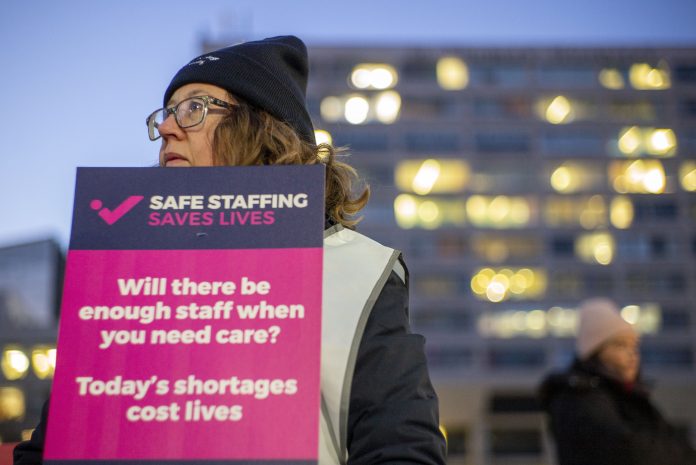Steve Score, Socialist Party East Midlands secretary
The shocking case of Lucy Letby, the former nurse convicted of murdering seven babies and attempting to murder six more, raises wider questions about the way the NHS is run. NHS staff of all job descriptions are dedicated to saving lives and looking after their patients, often in extremely difficult conditions – underpaid, understaffed, and underfunded. But cases such as this highlight a lack of accountability and democratic control in the NHS.
These horrific crimes happened on a neonatal ward at Chester Hospital between June 2015 and June 2016, yet concerns raised by staff about the deaths were not acted on by hospital management over a period of at least seven months.
There were other unexplained ‘collapses’ during that period. Even after Letby was moved from the neonatal ward she was allocated to the ‘risk and patient safety office’ where she had access to sensitive documents from the neonatal unit. Deaths were apparently not reported appropriately, so the high fatality rate was not picked up by the NHS in the way it should have been.
Unions
Doctors’ unions have commented on the failure of management to take warnings seriously. The BMA said it has been “clear that the NHS and the whole healthcare system must have an open culture where doctors are listened to and can be confident in speaking out.” The president of the consultants’ union HCSA said: “The intolerable cover-up culture by managers that we still see in corners of the NHS is bad for patients and bad for doctors”.
The government has announced an independent inquiry following the outcome of the court case, but not at this stage a statutory one that can make witnesses give evidence, as supported by victims’ families. But neither would it give staff as a whole, nor the affected families and users of the NHS, a democratic say over proceedings and decisions that are subsequently made. The Socialist Party also calls for an independent trade union inquiry – a workers’ inquiry that could draw in the wider working class with participation from health unions and others, to have a real say in how our health service is run.
NHS culture
The Health Service Ombudsman pointed out that, although they are very different cases, there are similarities in management actions in several baby death scandals in recent years: Morecambe Bay, Shrewsbury and Telford, East Kent, and Nottingham. He said: “It raises questions yet again about a dysfunctional, adversarial culture in many NHS trusts, sub-optimal methods for reporting and investigating wrongdoing, and unacceptable attitudes to whistleblowing and raising concerns”.
The unions have raised the fact that non-clinical managers aren’t regulated in the way that clinical staff are in professional bodies. The HCSA is calling for an independent body to be set up outside the NHS to protect whistleblowers.
However, would these steps be enough?
Whilst the NHS, at least the part that hasn’t yet been fully privatised, is publicly owned, the democratic accountability over its management is extremely limited, and has become less so under government changes to its structures.
Decisions of senior trust executives have been concerned with protecting reputational damage. Foundation Trusts, brought in by Blair’s New Labour, built on Thatcher’s ‘internal market’ that saw different parts of the NHS as competing rather than collaborating bodies.
The Socialist Party calls for democratic control and management by staff, their trade unions, and the users of the NHS. That means elected representatives from all these groups to be involved in non-clinical decision making. Genuine democratic accountability at every level would give all staff the confidence to raise anything that is going wrong and allow a full debate about how to tackle it.
This would need to go alongside the renationalisation of all those parts of the NHS that have been privatised and outsourced, proper funding so that there is enough equipment and beds, and solving the huge staffing shortages in the NHS, part of which is to give staff a proper and fair pay rise.







